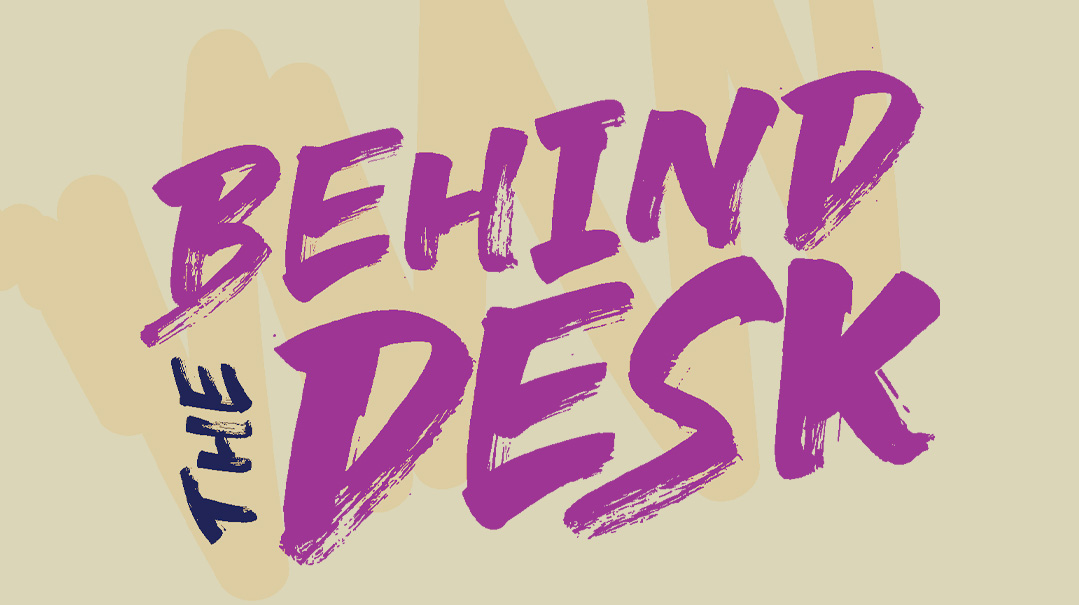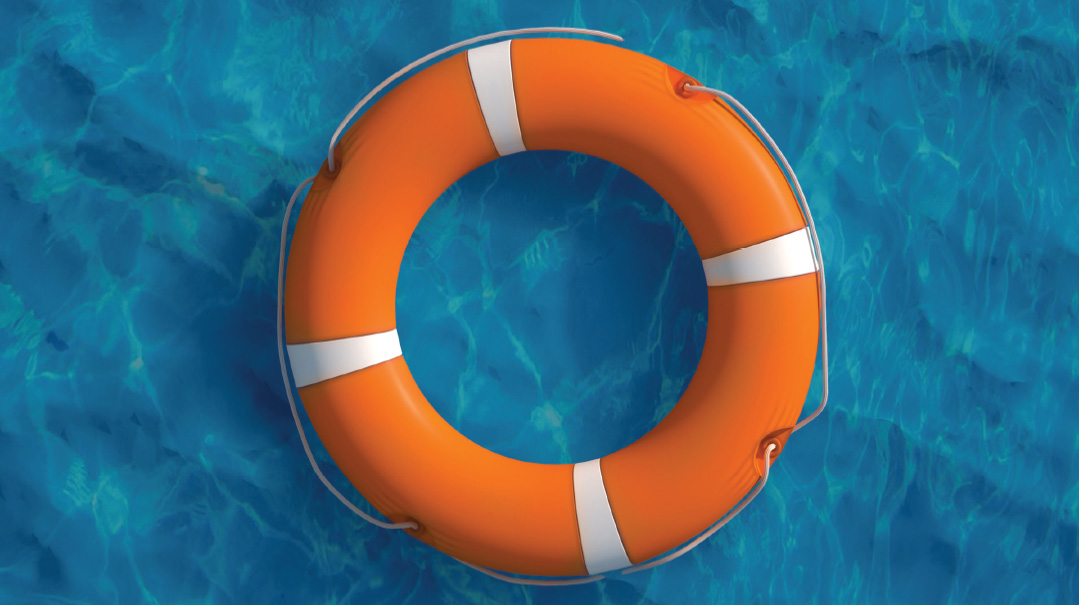Inside the World of Introverts
| August 24, 2021An introvert has a harder time putting themselves “out there’ and often feels like an “outsider” in social situations

It’s Sunday morning, and after a long first week of school, Ayelet is exhausted and has escaped to her bedroom. Unwinding to her favorite calming music, she looks out the window and sketches a squirrel (she’s named him “Chase”) as it scampers up a tree still green with summery leaves. Noticing a few yellow leaves, Ayelet thinks, why can’t summer last forever? Chase stops, looks up, sees her, then scurries further up the tree. Lucky squirrel — no school for you.The phone rings. It’s Leora, her BFF. Why do phone calls always feel like an intrusion? Ayelet knows why Leora is calling and doesn’t answer. She is not, unlike her bubbly, outgoing friend, psyched for the G.O. welcoming party that afternoon. Why can’t attendance be optional?
“Ayelet, are you in there?” Her mother knocks and peeks in. “Is something wrong?” “No, I’m fine.” I just need to be alone right now. Why do people always think there’s something wrong with me? Is there?
Does the above scenario feel familiar? Do you need a lot of time to yourself after a long week of school? Do you wish you didn’t have to show up to every school social event? Do you love your friends, but need your space? Secretly enjoyed being in quarantine last year and doing school by Zoom?
Do you sometimes wonder if maybe there is something wrong with you?
If this all sounds familiar, chances are, you are introvert. And no — there’s nothing wrong with you! (If you aren’t an introvert, keep reading anyway. Your best friend might be, and she needs you to understand her.)
What is an introvert?
According to author and introvert advocate Jenn Granneman, an introvert is “someone who prefers calm, minimally stimulating environments. Introverts tend to feel drained after socializing and regain their energy by spending time alone.”
Unlike extroverts, an introvert has a harder time putting themselves “out there’ and often feels like an “outsider” in social situations. It’s not that they are shy, or socially awkward (though sometimes that is the case). Rather, introverts don’t get the same really good feelings and energy from a crowd as extroverts do. It’s not that introverts don’t like people, it’s that they love doing things alone and get more pleasure from thoughtful, quiet activities like reading, art, and being out in nature. They have vivid imaginations and love to daydream and think.
Speaking of thinking, if you are an introvert, you think best when you are alone rather than in a group setting. You have an inner voice that is constant. Like, it never stays quiet! Maybe it even keeps you up at night. Things you did or said in the past play themselves over and over in your head. (Sometimes you drive yourself crazy.)
According to Granneman, introverts can feel lonely in a crowd “because it’s hard to hear your inner voice when there is so much noise around you.” Your inner life is rich and interesting, and when you can’t hear it (or share it) you get thrown off balance.
Here is a list of some things that identify introverts. You may recognize yourself in some or all of them. (Take note of the hidden gifts within!)
Because you process things more slowly and thoroughly, you prefer writing thoughts out to speaking them. Introverts often love journaling.
You think deeply and want to know why things matter.
You are interested in knowing what makes people tick and have good insights into character and behavior.
You enjoy doing things at a slower pace than extroverts.
Talking on the phone is not your favorite go-to activity if you have nothing to do. (You might even have phone phobia.)
Sometimes you feel like you are “faking it” in a crowd. (You might have great social skills, but still feel like you aren’t “being your true self.”)
You don’t like small talk. (But love DMCs.)
Friends may think you’re too intense. (You probably are.)
When you go to a social event, your goal is not to meet new people. You’d rather hang out with a few people you already know.
You notice details: If your friend is upset, or the color of a room, or the tint of the sky. A lot of artists are introverts.
If something is important to you, you can concentrate on it for hours. Really good things can come from this. Albert Einstein was an introvert.
You daydream. A lot. You have a vivid imagination.
You’re a good listener because you don’t mind giving center stage to others.
You prefer a few close friends to many superficial friendships.
You love being alone. That’s how you recharge so you can get out there again and be your best self.
You prefer the familiar and are not a thrill seeker. (Do you avoid roller coasters?)
You enjoy life’s simple pleasures (and get others to slow down and “smell the roses” too.)
The Science Behind It
For the non-science people out there, I’ll try to keep it simple. It all begins with neuroscience, the study of the human brain. This scientific field boomed in the 1990’s with the invention of the MRI — a technology that lets scientists actually look inside the brain. What studies have shown, is that the brains of introverts and extroverts are actually wired differently.
As you’ve probably already learned, our bodies have an autonomic nervous system (ANS) that regulates all of the organs in our bodies. The ANS has two main divisions called the sympathetic nervous system (SNS) and the parasympathetic nervous system (PNS). When we need to get moving (run that marathon) or we sense danger (you just realized you are standing under a tree with a beehive), it’s our SNS that tells our body what to do (which, in both cases, is RUN!). When we need to recuperate from the marathon/near escape, it’s the PNS that signals the body to go into “restore and recuperate” mode. It slows the heartbeat, helps us digest the food and water we need to recoup, and take the much-needed nap.
Two chemicals in the brain trigger these two nervous systems. The parasympathetic system is triggered by a chemical called acetylcholine and the sympathetic system is triggered by a chemical called dopamine. Introverts have a less active dopamine system. Why is this important? Because dopamine is responsible for what’s called the brain’s “reward system.” You know how it feels to quench your thirst or eat when you are really hungry? That’s the brain getting you to do what you need to do to survive. If it didn’t feel really good, we wouldn’t do it. Another thing that provides a positive “reward” and is important for our survival is socializing and developing relationships.
So, who’s going to want to go to their third’s cousin’s wedding, love every minute and stay until the very end? You guessed it, the person whose brain is more highly fueled with dopamine. This is because the reward of socializing feels so amazing to them, that it’s worth the expenditure of energy it takes to talk to every person in the simchah hall and dance every dance.
For an introvert, with less of the “reward system” chemical in their brains, the reward of socializing doesn’t feel as good. That’s because introvert brains favor the other chemical, acetylcholine, which triggers the parasympathetic nervous system. What feels good to them are quiet activities that involve the world of ideas such as reading, writing, thinking, and just quietly pondering or enjoying the universe.
One more important piece of the science puzzle: The introvert’s brain is more active than the extroverts when in a state of rest. If this sounds counterintuitive, it’s because it is. But it explains why introverts are not looking for more excitement (called a “low sensory threshold” in case you were wondering). On the other hand, because the extrovert brain’s resting state is less active, they are always seeking more stimulation to fight off boredom (“high sensory threshold”).
Okay, enough science and back to the wedding. Our introvert is feeling tired, drained, and so done by the middle of the first dance. She would happily leave at this point (if only her extrovert older sister who is her ride home wasn’t in the center of the circle with the kallah… again).
Wow, the brain is amazing. Hashem is amazing. And you, dear introvert, are amazing too, and just the way Hashem wanted you to be. (Nothing against extroverts — but you always get all the recognition, so please just take a back seat for this one article. And stop bouncing!)
School and the Introvert
Because school is such an outward focused setting, it can be especially challenging for introverts. Introverts feel best in their own comfortable environments (think bedroom, backyard, library.) Introverts prefer quiet. Introverts move more slowly. School is noisy, school is fast. People are everywhere and they don’t go away! And then there are the many visual distractions to overwhelm an introvert’s senses, plus the lack of time and space for much needed downtime. Add to the equation the pressure in some classes to process a lot of information quickly, and you’ll understand why an introvert is exhausted by the end of the week (and sometimes by the end of the day). Introverts, you know that burned out feeling. You get kind of fussy, kind of foggy, brain-freezy, and maybe even a little depressed. That’s when you know you need to recharge, i.e. disappear into your cave of choice.
Finally, many teachers may not be aware of, or tuned into, the introverted student and might misunderstand them. Mrs. Gluck* (an extrovert) could mistakenly think that sweet, day-dreamy Ayelet isn’t trying hard enough, isn’t paying attention, and needs to show more enthusiasm.
Introverts, you may have to enlighten your teachers. Stay after class one day and respectfully explain that, as an introvert, you don’t like to be called on, that when you’re doodling it’s your way of managing the over-stimulation, and that sometimes you need more time to process certain kinds of information (as in math word problems — yes that’s also an introvert thing). It’s not that you aren’t trying hard, it’s just that sometimes you space out because your introvert brain is overstimulated and just can’t take it anymore. And try, just once in a while, to give your teacher a peek into your inner world so she knows just how complex and fascinating you are.
Advice from Introverts Who Made it Through High School
I asked a few introverts to share what high school was like for them. Looking back, would they have done anything differently? What advice would they give young introverts today?
Tzipporah M.* said, “High school was all about appearances and fitting it. So whatever that looked like, I did. Even though I’m an introvert, I’m not shy, and I can be pretty funny. I was able to put myself out there in order to fit in with the popular girls. There was nothing wrong with those girls, but secretly I felt like I was faking it. If I’d been more confident, I think I would have chosen different kinds of friends; not as cool, and more like the real me. Things like G.O. activities, Melaveh Malkahs and shabbatons were hard. We didn’t have a choice to not participate. Since I didn’t want to be seen as a nebach, I was that girl dancing and singing, in the middle of everything. Really, I just wanted to sit back and watch, then leave early. Now, I choose my friends carefully and cherish the few close friendships I have. One of those friends is someone from my high school who I’d never have considered being friends with when we were in school together all those years! And I’ve learned to not feel bad turning down invitations. If it’s important for me to attend an event or simchah, I’ll go, but I’ll let myself enjoy it from a distance. It’s hard not to compare ourselves to extroverts, but we have to embrace who we are. To girls in high school I’d say, be confident in who you are. Find friends you feel comfortable around. Go to events, but sit back if you want to. You’ll be much happier that way.”
Nechama K.* had this to say: “I switched from a large high school to a much smaller one and that made a huge difference. I think I’ve always been pretty comfortable in my own skin. I always knew I was an introvert and never felt the need to fake it. I was that kid clinging to my mother’s skirt on the first day of nursery school. Thank God, my mother understood me. She stayed in the classroom with me each morning until I was ready for her to leave. Some schools wouldn’t have let her do that, but this school was particularly attuned to the idea of al pi darcho. My new high school was known for being nonjudgmental and a little “out of the box” and the girls there were very kind and accepting. That helped, because high school can be a judgmental time. I was always the quietest one in my small class, but I felt accepted and understood. I never would have run for a job in G.O., but one of my friends nominated me to be the G.O. photographer and I got voted in. That was the perfect job for me. Behind the scenes! Now I’m a stay-at-home mom and have a small home business. I don’t need to be out in the world in a big way. I know myself and I’m happy.”
It’s Not All or Nothing
It’s important to know that nobody is all one way or the other. As much as extroverts love to be out there, they also need quiet time. Likewise, even though introverts love to be alone, they really do like people and want to socialize — just in smaller doses. Every person is different. There is what scientists call a “continuum.” Think of a scale between one and twenty and every number in between. Each introvert or extrovert falls somewhere on the continuum. But one thing is certain — being an introvert is hard-wired into your brain. It’s who you are.
From one introvert to the other, I’d like to end by saying, you are not alone. It took me many years to accept and embrace what and who I am. I wish there’d been more information about introverts when I was growing up. My message to you is this: Don’t feel like you have to compete with the extroverts in your life. Embrace your introvert self because that is where you will find the treasure trove of gifts you have to offer.
A Principal’s Perspective
Mrs. Shifra Revah, Dean of Machon Bais Yaakov, Los Angeles, CA
Q: What advice can you give to introverted students that might help them cope with so many hours in a social setting?
A: Actually, I find that many introverts do enjoy the hours they spend in academic classes because this is when they get to work in a focused way. If the classroom is orderly, and relatively muted, it won’t be overwhelming. A lot of introverts are deep thinkers, and although they aren’t always comfortable expressing themselves in social settings, they often shine in an academic environment.
The challenge is managing the extracurricular stuff. I would hope every school has some quiet spaces where a student can find respite from the noise. During lunch, they might find a quiet corner with a friend, or read a book. Of course, it helps to have an accepting and supportive school culture where there is space to be an individual.
Q: What extracurricular activities might best suit an introvert?
A: Introverts are a varied group. Some are musical, some artistic, some are talented writers. Many have spent time developing their talents. They have a lot to contribute, as long as they don’t have to be in the limelight or spend hours at noisy practices. Some are voracious readers with sophisticated writing styles who may want to write the script for a play, or edit a video, write songs, or work on scenery, props, or lighting. Whatever goes on behind the scenes can be a comfortable place for them. School newspapers or the yearbook, requiring solitary work or working in small groups, are good options. Introverts, like everyone else, need fulfilling experiences and opportunities to discover latent talents. This requires faculty who look to cultivate girls’ talents and leadership ability — and match a student with a job that suits her.
Q: How can introverts flourish in high school?
A: Although they might not be the girl singing in the hallways during lunch hours, they have much to contribute. A school needs a variety of girls to be an energized environment, with everyone playing the role that best suits them. A school needs introverts: They may be role models of serious scholarship; they are keen observers and will notice issues with a class or a student who needs attention. They are often very compassionate people who will reach out in a quiet way. If they are willing to offer their talents, they can and should be very valuable members of the school community — without forcing themselves to be something they aren’t.
Final Thoughts
Many of my students are somewhere on a scale between extroversion and introversion. I’ve found that introverts do need and enjoy social interaction, maybe in a more mellow setting, but with some hype and excitement. As long as they know they can find the space to regroup, introverts are able to enjoy a lot of school activities. I’ve seen that they are often surprised that they did, in fact, enjoy an event they were dreading.
Finally, I think that schools need to recognize individual needs. If someone needs quiet on a shabbaton or at a chagigah, the school should realize it is not recalcitrant, anti-social behavior, but a real and legitimate need.
(Originally featured in Teen Pages, Issue 875)
Oops! We could not locate your form.







